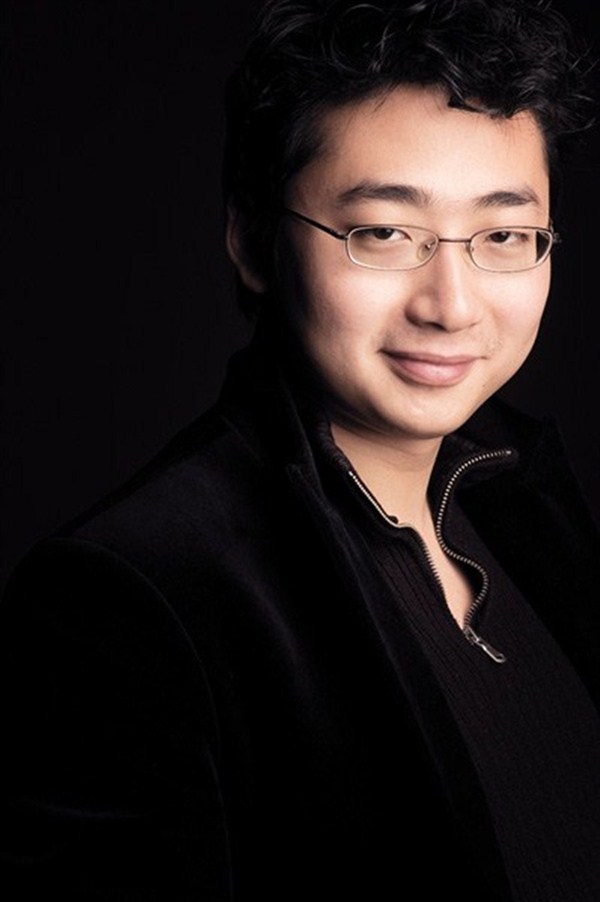
今日上海
年轻钢琴家沪上演绎李斯特经典 - 2015年02月06日
It’s black and white to pianist: Music is his joy

MAKING a cup of good tea and having it slowly flow down the throat is a routine for 35-year-old pianist Sun Yingdi to start a day. He considers the tea-appreciation procedure a way to obtain peace of mind for a day’s work, mostly hours of practice.
The practice itself, though boring in most people’s eyes, brings great joy to Sun as a way to immerse himself in pure music and communicate with the great composers.
After winning the International Franz Liszt Piano Competition in 2005, Sun has embarked on international concert tours with numerous leading orchestras ever since. He has cooperated with the Rotterdam Philharmonic, Czech National Symphony Orchestra, I’Orchestre Philharmonique de Radio France and the Hong Kong Philharmonic.
He recently brought his interpretation of Liszt again with the Shanghai Symphony Orchestra for a concert.
Born in 1980 in Shanghai, Sun put his fingers on a piano for the first time at the age of five, just like thousands of other Chinese children at the time converging to the piano as a trend.
Enrolled in the kindergarten and schools attached to the Shanghai Conservatory of Music, Sun was a good piano student and with enough talent to top the class.
But it never occurred to him that he would make a career with piano until his teacher at the conservatory pushed him to compete for international prizes in 2005.
“I was never an ambitious person, but just enjoyed piano playing as something I like,” says Sun. “But it would be hard for me to continue without international prizes, as that was one of the criteria for faculty at the Conservatory. So, I had to take the shot.”
His interpretation of Liszt’s “Piano Concerto No. 1” won him the first prize at the Franz Liszt Piano Competition and a credit of “Liszt in Primary Colors” among the media. The piece has become one of the most frequently played at Sun’s concerts.
“Interpretation of music needs to be polished repeatedly, just like writing an article,” says Sun. “The procedure would be like having the energy accumulated and then released. My interpretation of a piece won’t be the same as what I did 10 years ago, as I am not who I used to be. Every individual practice and group rehearsal with top musicians will help me accumulate energy to release on stage.”
Despite the great popularity of hybrid forms of music today, Sun is cautious about making that move.
“It is always good to innovate, but it is never shameful to keep the traditional and classic,” says Sun. “As a classical musician, I am confident about the beauty of classical music, which supported its spread in the past hundreds of years.”
But Sun says he won’t reject crossover music if it can help add artistic values, rather than just be a gimmick, as he thinks many current crossover works are.
“It is only worth trying when one plus one equals more than two,” says Sun. “Though it would make an issue when it equals to 0.5, it would end up as a laughingstock in years. And I don’t want to be a part of that.”
Rehearsing and staging with the Shanghai Symphony was a great experience for Sun as he found many of his schoolmates and old friends in the group. It harkened to his youth, when music was seemed to be all that the young cared about.
It reminded him of an old Chinese saying: “The wise deal with the concrete matters while the fool competes for the bubble reputation.”
“We all agree that we are such
lucky men to take a hobby as jobs,” says Sun. “Playing music is already such a great reward for us, while all the other prizes and honors that we get are like extra bonus.”

